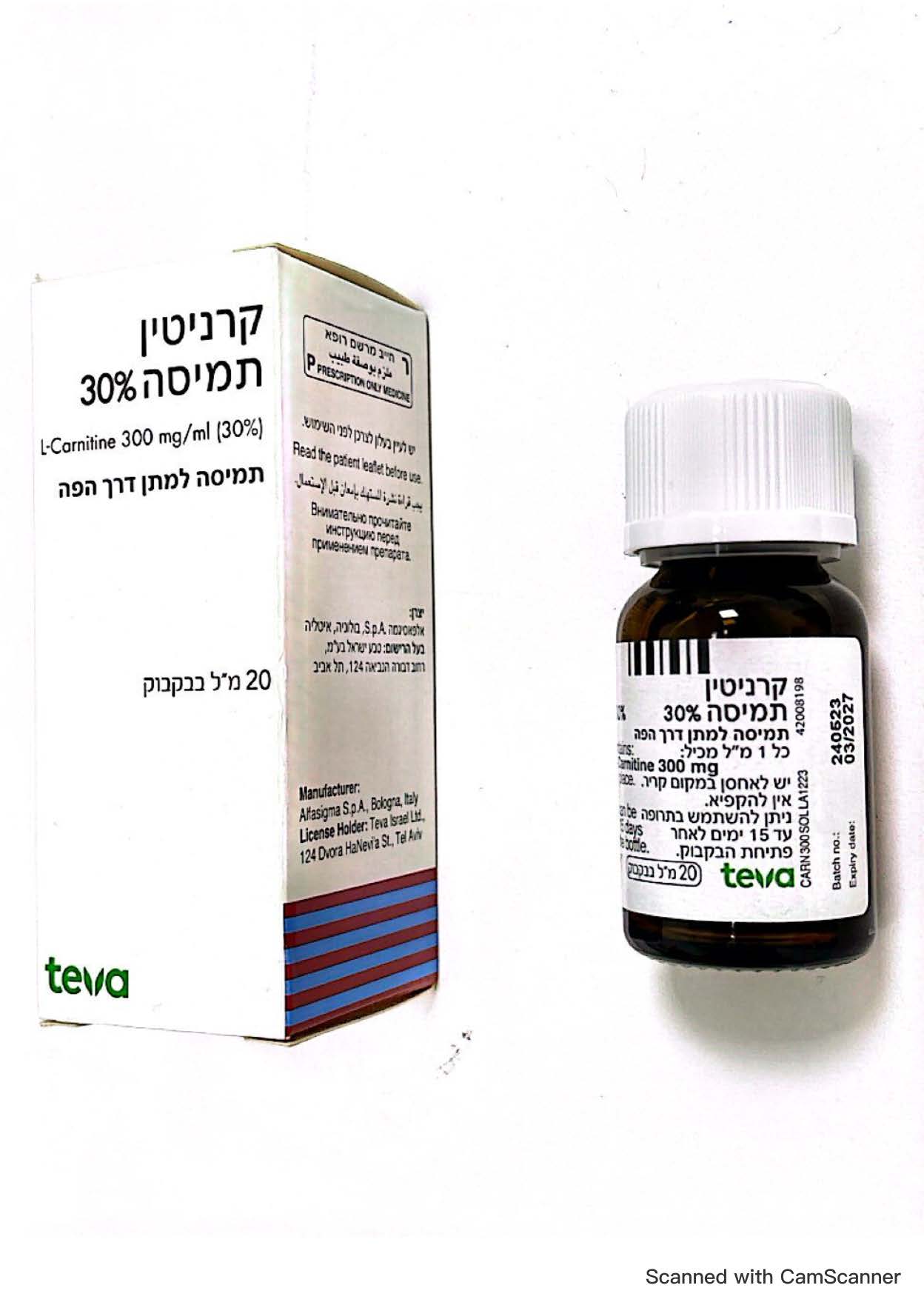Quest for the right Drug

קרניטין תמיסה % 30 CARNITINE SOLUTION 30% (LEVOCARNITINE)
תרופה במרשם
תרופה בסל
נרקוטיקה
ציטוטוקסיקה
צורת מתן:
פומי : PER OS
צורת מינון:
תמיסה : SOLUTION
עלון לרופא
מינוניםPosology התוויות
Indications תופעות לוואי
Adverse reactions התוויות נגד
Contraindications אינטראקציות
Interactions מינון יתר
Overdose הריון/הנקה
Pregnancy & Lactation אוכלוסיות מיוחדות
Special populations תכונות פרמקולוגיות
Pharmacological properties מידע רוקחי
Pharmaceutical particulars אזהרת שימוש
Special Warning עלון לרופא
Physicians Leaflet
Special Warning : אזהרת שימוש
4.4 Special warnings and precautions for use Since L-carnitine improves glucose utilization, the administration of L-carnitine to diabetic patients receiving either insulin or hypoglycaemic oral treatment may result in hypoglycaemia. Plasma glucose levels in these subjects must therefore be regularly monitored in order to enable an immediate adjustment of the hypoglycaemic treatment. The balance of fluids and electrolytes must be monitored. In patients with previous seizure activity, L-carnitine administration may increase the incidence and/or severity of seizure attacks. In patients with underling predisposing conditions, treatment with L- carnitine may trigger the convulsive crisis. Safety and efficacy of levocarnitine for oral administration have not been shown in patients with renal failure. Chronic oral administration of high doses of levocarnitine in patients with severe renal dysfunction or with end stage renal disease (ESRD) and undergoing dialysis may induce accumulation of the potentially toxic metabolites trimethylamine (TMA) and trimethylamine-N- oxide (TMAO), since these metabolites are normally excreted in the urine. L-carnitine is a physiological product and therefore shows no risk of addiction or dependence. Very rare cases of increased INR (International Normalized Ratio) have been reported in patients treated concomitantly with coumarin drugs (see sections 4.8 and 4.5). In patients taking anticoagulants together with CARNITINE, the INR - or other suitable coagulation tests - should be checked weekly until stable values are reached and thereafter monthly. CARNITINE SOLUTION 30% contains sucrose: patients with rare hereditary problems of fructose intolerance, glucose-galactose malabsorption, or sucrase-isomaltase insufficiency should not take this medicine. May be harmful to the teeth. Moreover, this must also be considered in diabetic patients and in patients who are placed in a hypocaloric diet regimen. CARNITINE SOLUTION 30% contains sorbitol. Patients with rare hereditary problems of fructose intolerance should not take this medicine. CARNITINE SOLUTION 30% contains para-hydroxy-benzoates (methyl para-hydroxy-benzoates and propyl para-hydroxy-benzoates) as preservatives: these may cause allergic reactions (possibly delayed).
Effects on Driving
4.7 Effects on ability to drive and use machines CARNITINE SOLUTION 30% has no influence on the ability to drive and use machines.

שימוש לפי פנקס קופ''ח כללית 1994
לא צוין
תאריך הכללה מקורי בסל
01/01/1995
הגבלות
תרופה שאושרה לשימוש כללי בקופ'ח
מידע נוסף
